Eco-Cha Tea Club

Award-Winning Tie Guan Yin Oolong Tea Tasting Notes | Eco-Cha Tea Club

Dong Ding Tie Guan Yin Oolong Tasting Notes | Eco-Cha Teas

Dong Ding Tie Guan Yin Oolong Tea | Eco-Cha Tea Club
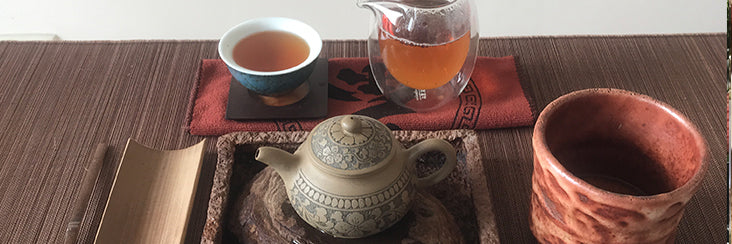
Tieguanyin Light Roast Oolong Tea Tasting Notes | Eco-Cha Tea Club
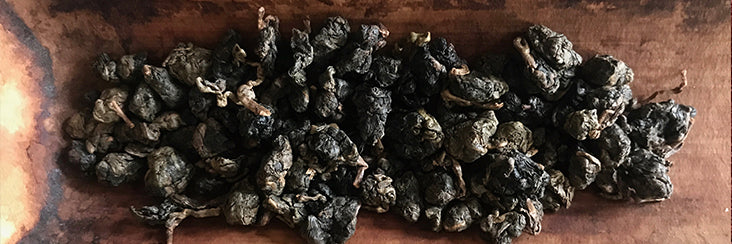
Fo Shou Oolong Tea Tasting Notes | Eco-Cha Tea Club
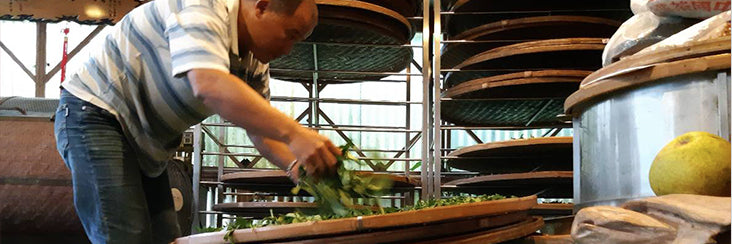
Fo Shou Oolong Tea | Eco-Cha Tea Club
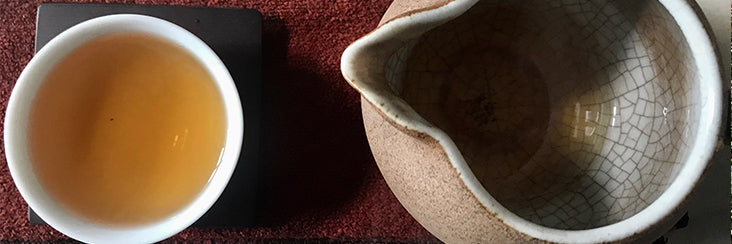
Dong Ding Tie Guan Yin Tasting Notes | Eco-Cha Tea Club
This month's batch of tea being shared with the Eco-Cha Tea Club was made by Mr. Su — an 80 year-old artisan of traditional Dong Ding Oolong Tea. He planted a plot of the Tie Guan Yin strain in his backyard several years ago, and this is the second time we've sourced this tea type from him. Mr. Su is our favorite representative of traditionally made tea in Taiwan, and it brings us a special kind of joy to be able to share his tea with our tea club members.
This batch has a particularly sweet character, with slightly tangy, fruity notes and a pleasantly clean lingering aftertaste. It has just enough of that cured, almost fermented character that makes it reminiscent of a traditionally made Tie Guan Yin Oolong. But given that it was only roasted once, it maintains a mild flavor profile similar to a Hong Shui Oolong.
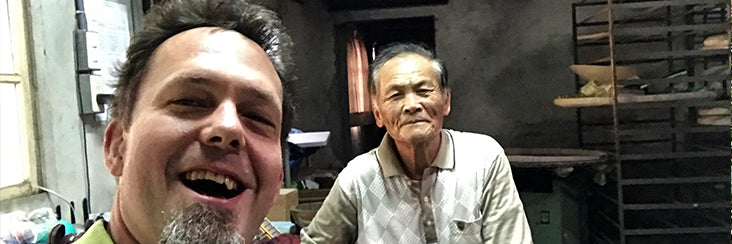
Dong Ding Tie Guan Yin Oolong | Eco-Cha Tea Club
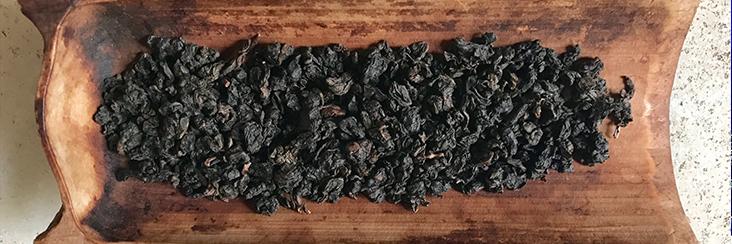
Tieguanyin Oolong Tea Tasting Notes | Eco-Cha Tea Club
In many cases, traditional styles of tea making involve much more "curing" of the tea leaves that has the dual purpose of bringing out a strong, distinct character, and stabilizes the tea leaves to maintain its flavor — giving it a prolonged shelf life as well as a discernible profile. In this sense, Tieguanyin Oolong is a prime example of a traditional product of regional origin. Initially brought from mainland China, this tradition took root in Northern Taiwan in the 1800's, and it has survived to this day.
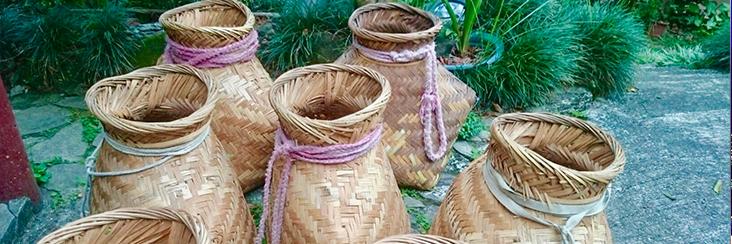
Tieguanyin Oolong Tea | Eco-Cha Tea Club
This farm is the only place we've seen the baskets shown above still being used in Taiwan for harvesting tea by hand. They are now typically displayed as a memoir of generations past. This in itself is a symbol for the tradition that this farmer has made his vocation to preserve. At the young age of 20, he inherited his family farm in the historical tea producing area of Muzha in Taipei County, and has dedicated the last 30 years of his life to keeping the tradition alive by making the type of tea for which this place name has been renowned for well over 100 years - Tieguanyin Oolong.

